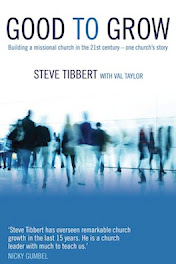When there are multiple and often conflicting visions within the same church the leader’s task becomes complicated. Rising levels of education, increased travel, living in more locations and meeting others from diverse places and backgrounds – all these serve to exponentially raise people’s expectations of their church leaders. From this situation arises a division over the rules that govern church life.
Old rules and new rules of church leadership
Leith Anderson points out that the new rules of church leadership aren’t available in a definitive list – they are continually changing. He gives some examples and points out that sometimes the new rules are a new version of the old rules!
Old rule: Faithfulness is sufficient
New rule: Effectiveness is expected
Leaders born before 1950 will commonly honour other retiring leaders with praise for their faithfulness. This encompasses loyalty, showing up, working hard, not complaining, and tolerating less-than-the-best pay and working conditions! Those born after 1950 will tend to major on effectiveness.
This isn’t to imply that earlier generations reward incompetence, nor that today’s leaders aren’t faithful. But it does recognise that the pendulum has swung toward an expectation that leaders not only show up but know what to do and get those things done before they leave. If they are ineffective their employment is more likely to be terminated than previously.
And if a veteran leader is asked to stand down for not doing a ‘good enough’ job, his response will often be, ‘But I’ve worked here for 20 years. I took a pay cut when the budget was short – I’ve given my life to this organisation’ - explaining why he should stay under the old rules which no longer apply. The new rule asks, ‘What have you done lately that has made a difference for good?’
My response:
I believe that the clash of this old rule/new rule is increasingly found in today’s churches – for good or ill! I also think it should be possible to find a middle road where loyalty and service are honoured while recognising that any under-performance is an issue that needs to be addressed. My observation on this is that we can lean toward an overly pastoral attitude to the needs of the individual leader while overlooking those he oversees. Honest dialogue is required to ensure that we are caring biblically for our 21st century flocks and continuing to build integrity and strength into the churches.
Charismatic Gifts in Church History
4 weeks ago






